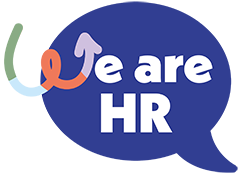Returning from time off can have you either feeling relaxed or some feelings of stress and anxiety may come rushing back. Excessive and prolonged feelings of stress can lead to feelings of burnout, where you are emotionally, physically and mentally exhausted. These feelings can come when you are feeling overwhelmed, emotionally drained, and not able to meet constant demands. Reaching a state of burnout means a reduction in your productivity, lowered energy levels and may have you feeling hopeless, helpless, cynical and resentful. Experiencing burnout for prolonged periods can also have effects on your body, such as making you vulnerable to catching colds and the flu.
Experiencing feelings of helplessness, tiredness, or sluggishness at times does not mean you are burnt out, however, if these feelings are constant, every day, then you may be on the road to burnout. It is not something that happens overnight, but is rather a gradual process, with the signs and symptoms being subtle at first but increasing as time goes on.
Some physical signs of burnout can include frequent illnesses, frequent headaches or muscle pains, feeling tired and drained most of the time and changes in eating and sleeping habits. Emotional signs may include feelings like a failure, or doubting yourself, feelings of being trapped, detached or alone, lack of motivation and decreased feelings of accomplishment and satisfaction.
The effects of burnout on an organisation can be significant, resulting in lower productivity and engagement, higher turnover and higher absenteeism. Employees who are on the road to burnout are more likely to take sick days, look for new jobs and feel less confident in their work performances. So what can HR managers do to help employees who are on the road to burnout? In 2017 the UK Government produced a review titled Thriving at Work which looked at issues of mental health and employers. The review noted that HR departments within organisations need to demonstrate accountability towards their staff and could do so in nominating a health and wellbeing lead who has a clear mandate in supporting and protecting the mental health of its employees.
Further studies have shown that organisations need to address all areas in the workplace which may cause burnout. HR Managers can take an active role in making well-being part of the organisations’ culture, in creating an organisational culture dictating how employees and employers ought to treat each other. Within the promotion of a culture that aims to look after its staff, HR Managers can encourage employees to take mental health days. By encouraging this, employees may find it easier to ease apprehension to ask for time off. With regards to vacations or holidays, this can also be an important step in helping your employees, by valuing vacations and encouraging your employees to take their allotted vacation time.
HR Managers can also offer mental health services, add activities during company hours, giving employees reasons to leave their desks. Perhaps suggesting walk and talk meetings, thus providing employees with a change of scenery. Offering working from home may be another way in which to motivate employees, as working from home can give them a break from the office and shows the employees that they are trusted. One key thing is to be proactive, to work on the culture and create situations where the employees feel they can talk about their feelings of prolonged stress and anxiety. It is much easier to address the problem before it has reached the stage of a full-blown burnout.
Managing burnout as an HR Manager may not be one simple solution, but in helping your employees to feel better and have an enjoyable work environment, the organisation is more likely to thrive. As happy employees tend to make the business run smoother and be more productive.
By Natasia Hieber


